The Philosophy of Hate Politics
In today's world, the term "hate politics" seems to echo louder than ever. It's a phrase that carries deep implications and raises critical questions about the fabric of our society. But what exactly is hate politics? At its core, it refers to the use of animosity and division as tools for political gain. This article explores the underlying principles and consequences of hate politics, examining its roots, manifestations, and impact on society, while also considering potential solutions for fostering a more inclusive political discourse. As we delve into this topic, we must ask ourselves: how did we arrive at this point, and what can we do to change the narrative?
Understanding the historical and psychological origins of hate politics is crucial for analyzing its current prevalence. Hate politics doesn't just emerge overnight; it's often a product of long-standing societal issues. Factors such as economic inequality, cultural clashes, and historical grievances can create fertile ground for divisive ideologies. For instance, when people feel economically marginalized, they may seek solace in groups that blame others for their plight, fostering a sense of belonging that is rooted in exclusion. This sense of belonging can be intoxicating, leading individuals to adopt extreme views that they might not have considered otherwise.
Hate politics can take various forms, from rhetoric to policy. It manifests in the way politicians speak, the policies they promote, and even the media narratives that dominate public discourse. These manifestations affect individuals and communities, shaping public perception and behavior in profound ways. For example, inflammatory rhetoric can incite violence, while discriminatory policies can marginalize entire groups of people. The impact of hate politics is not just theoretical; it can lead to real-world consequences that ripple through society.
Media plays a significant role in amplifying hate politics. In our digital age, news outlets and social media platforms serve as conduits for information, but they can also become breeding grounds for divisive content. The sensational nature of some news stories often overshadows more nuanced discussions, leading to a skewed perception of reality. How often do we see headlines that provoke outrage rather than understanding? This trend can perpetuate division, making it harder to find common ground.
Algorithms often prioritize sensational content, which can lead to the proliferation of hate speech. These algorithms are designed to capture attention, but they frequently do so at the expense of constructive dialogue. When users engage more with extreme content, the algorithms respond by promoting even more of it, creating a vicious cycle. This raises an important question: how can we hold social media platforms accountable for the content they promote?
Traditional media outlets can also perpetuate hate politics through biased reporting. Journalists have a responsibility to present facts fairly and accurately, yet the pressure to attract viewers can lead to sensationalism. This part discusses the responsibility of journalists in shaping narratives. When media outlets prioritize ratings over integrity, they risk normalizing hate and division in society.
Politicians often use hate as a tool for mobilization. By exploiting societal divisions, they can rally support and galvanize their base. This strategy can be effective in the short term, but it poses long-term risks to social cohesion. As voters, we must critically evaluate the messages being presented to us and consider the implications of supporting candidates who thrive on division. Are we willing to sacrifice our collective well-being for the sake of political gain?
Hate politics not only influences societal dynamics but also affects individual mental health. The psychological toll on both victims and perpetrators of hate can be devastating. For victims, constant exposure to hate rhetoric can lead to feelings of fear, anxiety, and isolation. For perpetrators, engaging in hate can create a cycle of anger and resentment that ultimately harms their own mental well-being.
The rise of hate politics can create a climate of fear. This fear affects community cohesion and individual well-being, leading to a society where mistrust and hostility become the norm. When people feel threatened, they are less likely to engage in constructive dialogue, further entrenching divides. The emotional landscape of a community can shift dramatically in response to hate politics, leading to a breakdown in social bonds.
Repeated exposure to hate rhetoric can lead to desensitization. Over time, individuals may become numb to the violence and hatred that permeate political discourse. This normalization of violence within society can have dire consequences, as it diminishes our collective empathy and makes it easier for harmful ideologies to take root. We must be vigilant in recognizing these patterns and actively resist them.
Addressing hate politics requires collective effort. It’s not enough to simply condemn hate; we must actively work towards fostering inclusivity in political discourse. This section outlines strategies and initiatives aimed at countering hate and promoting understanding among diverse communities. By coming together, we can create a more compassionate society.
Education plays a pivotal role in combating hate. Programs designed to foster critical thinking and empathy among students can help dismantle the foundations of hate politics. By encouraging young people to engage with diverse perspectives, we can cultivate a generation that values understanding over division.
Grassroots movements can effectively challenge hate politics. Successful community initiatives that promote understanding and dialogue can serve as powerful counterweights to divisive ideologies. When individuals come together to share their stories and experiences, they can build bridges that transcend hate.
- What is hate politics? Hate politics refers to the use of animosity and division as tools for political gain.
- How does hate politics manifest in society? It manifests through rhetoric, policies, and media narratives that promote division.
- What role does the media play in hate politics? Media can amplify hate politics through sensational reporting and biased narratives.
- How can we counter hate politics? Through education and community engagement, we can promote inclusivity and understanding.
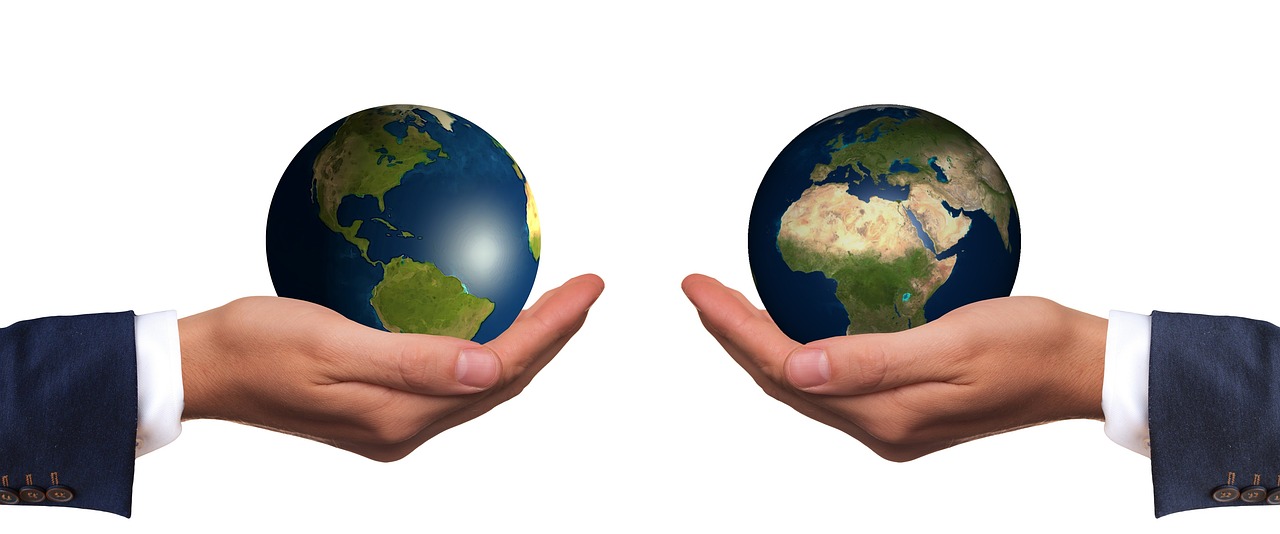
The Roots of Hate Politics
This article explores the underlying principles and consequences of hate politics, examining its roots, manifestations, and impact on society, while also considering potential solutions for fostering a more inclusive political discourse.
Understanding the historical and psychological origins of hate politics is crucial for analyzing its current prevalence. At its core, hate politics thrives on a foundation of fear, misunderstanding, and a desire for control. Throughout history, societal factors such as economic instability, social inequality, and cultural clashes have fueled the emergence of divisive ideologies. When people feel threatened—whether by job loss, immigration, or shifting cultural norms—they often seek solace in groups that reinforce their fears and prejudices.
One of the most significant contributors to hate politics is the scapegoating phenomenon. This occurs when individuals or groups blame others for their problems, creating a false enemy that distracts from the real issues at hand. For example, during economic downturns, marginalized communities often bear the brunt of public anger, leading to increased hostility and division. The historical context cannot be ignored; instances like the rise of fascism in the early 20th century showcase how economic despair can breed hatred and violence.
Additionally, identity politics plays a pivotal role in the development of hate politics. When individuals align themselves strictly with their racial, ethnic, or religious identities, it can lead to an “us versus them” mentality. This division is often exacerbated by political leaders who exploit these identities for their gain, thus perpetuating a cycle of hatred. The result is a fragmented society where dialogue is replaced by hostility and suspicion.
Moreover, the psychological aspect of hate politics cannot be overlooked. Cognitive biases, such as confirmation bias, lead individuals to seek out information that validates their existing beliefs while dismissing opposing viewpoints. This selective exposure creates echo chambers that reinforce divisive ideologies. In such environments, people are less likely to engage in constructive conversations, further entrenching their positions.
To illustrate the interplay of these factors, consider the following table summarizing the roots of hate politics:
| Factor | Description |
|---|---|
| Economic Instability | In times of financial crisis, individuals often look for scapegoats to blame for their hardships. |
| Scapegoating | Targeting marginalized groups as the source of societal problems, diverting attention from systemic issues. |
| Identity Politics | Strong identification with a particular group can lead to division and hostility towards others. |
| Cognitive Biases | Psychological tendencies that reinforce existing beliefs and create echo chambers. |
In conclusion, the roots of hate politics are deeply embedded in historical, social, and psychological contexts. Understanding these roots is essential for addressing the current climate of division and hostility. By recognizing the factors that contribute to hate politics, we can begin to dismantle the structures that allow it to thrive and work towards a more inclusive and compassionate political discourse.
- What is hate politics? Hate politics refers to the use of hateful rhetoric and divisive ideologies in political discourse, often targeting specific groups based on race, religion, or other identities.
- How does media influence hate politics? Media, both traditional and social, can amplify hate politics by prioritizing sensational content that spreads fear and division.
- Can hate politics be countered? Yes, through education, community engagement, and promoting empathy, society can work towards countering hate politics.
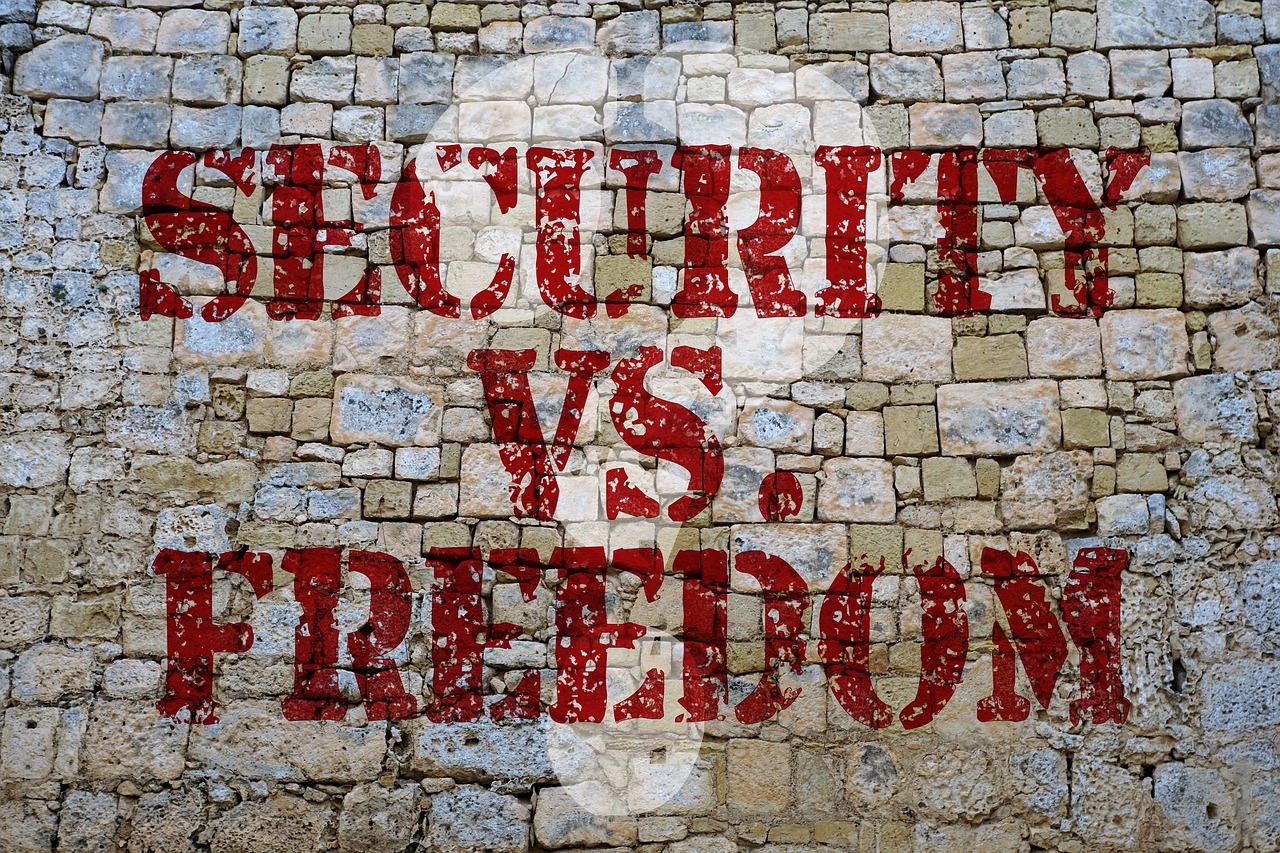
Hate politics manifests in various forms, each with its own unique impact on individuals and communities. It can be as overt as inflammatory rhetoric during political campaigns or as subtle as biased media coverage that shapes public opinion. Understanding these manifestations is crucial for recognizing how deeply entrenched hate can become in our societal fabric. One of the most striking ways hate politics reveals itself is through the language used in political discourse. Politicians often resort to divisive language that targets specific groups, fostering an environment where hatred can flourish. This kind of rhetoric doesn't just disappear after the election; it seeps into the everyday lives of citizens, influencing how they perceive and interact with one another.
Moreover, hate politics can also manifest in policy decisions that disproportionately affect marginalized communities. For instance, legislation that restricts immigration or targets specific religions can create an atmosphere of hostility and fear. These policies often stem from a desire to solidify a political base by appealing to the fears and prejudices of certain voter demographics. The consequences of such policies can be dire, leading to increased discrimination, social fragmentation, and even violence.
Another critical aspect of hate politics is its amplification through various media channels. The role of media cannot be overstated; it serves as both a mirror and a magnifying glass for societal sentiments. Media coverage can either challenge or reinforce existing biases, and unfortunately, many outlets choose sensationalism over accuracy. This leads to a skewed representation of reality, where hate-filled narratives gain traction. For instance, consider the following table that illustrates how different media platforms contribute to the spread of hate politics:
| Media Type | Contribution to Hate Politics |
|---|---|
| Social Media | Amplifies divisive content through algorithms that prioritize engagement over accuracy. |
| Traditional News Outlets | Often perpetuates stereotypes through biased reporting and selective coverage. |
| Talk Radio | Frequently features hosts who promote fear-based narratives, reinforcing existing prejudices. |
Furthermore, the psychological impact of these manifestations cannot be ignored. When hate is normalized in political discourse, it creates a culture where individuals feel justified in expressing their own prejudices. This normalization can lead to increased incidents of hate crimes and discrimination, as individuals feel emboldened to act on their biases. The effects can ripple through society, creating a toxic environment where fear and mistrust thrive.
In summary, the manifestations of hate politics are pervasive and multifaceted. They shape not only the political landscape but also the very fabric of our communities. Recognizing these manifestations is the first step toward addressing the underlying issues and fostering a more inclusive and respectful political discourse.
- What are the main forms of hate politics?
Hate politics can manifest through inflammatory rhetoric, biased media coverage, and discriminatory policies that target specific groups. - How does media influence hate politics?
Media can amplify hate through sensationalism and biased reporting, shaping public perception and attitudes. - What are the psychological effects of hate politics?
Hate politics can create a climate of fear and anxiety, leading to increased discrimination and normalization of violence. - How can we counter hate politics?
Countering hate politics requires collective efforts, including educational initiatives and community engagement to promote understanding and empathy.
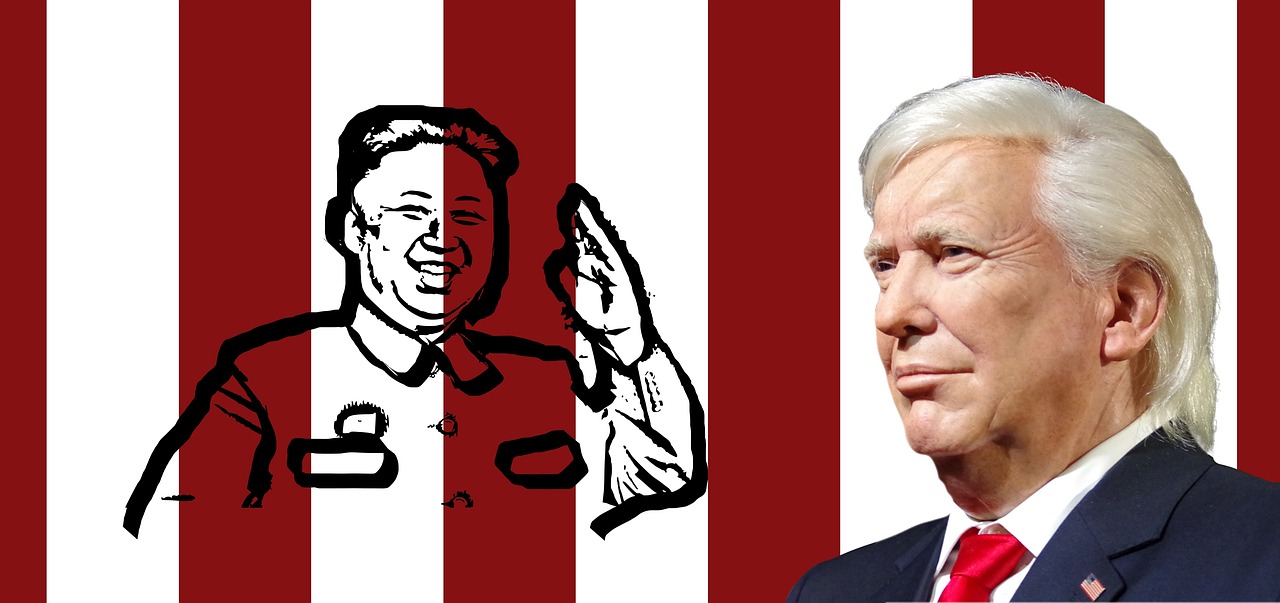
The media landscape has undergone a seismic shift in recent years, becoming a powerful player in the realm of hate politics. With the rise of digital platforms, information spreads faster than ever, and unfortunately, so does misinformation and hate speech. It's almost like a wildfire fueled by sensationalism, where the flames of divisive rhetoric are fanned by headlines designed to grab attention rather than promote understanding. But how exactly does the media contribute to this phenomenon? Let's dive into the nuances of this critical issue.
First off, traditional media outlets, such as newspapers and television networks, have a significant responsibility in shaping public perception. They act as gatekeepers, determining which stories are worth telling and how they are framed. When news outlets prioritize sensational stories that highlight conflict or division, they inadvertently normalize hate politics. For instance, coverage that disproportionately features violent acts committed by specific groups can create a narrative that paints entire communities with a broad brush, fostering an environment of fear and suspicion.
Moreover, the way stories are reported can either exacerbate tensions or promote understanding. Consider the difference in impact between a headline that reads "Protesters Clash in Violent Outburst" versus one that states "Community Members Gather to Voice Concerns." The former incites fear and reinforces negative stereotypes, while the latter encourages dialogue and empathy. This is where the responsibility of journalists becomes paramount. They must navigate the fine line between reporting the truth and avoiding sensationalism that contributes to a culture of hate.
Now, let’s not forget the role of social media platforms, which have become breeding grounds for hate politics. Algorithms designed to maximize user engagement often prioritize sensational content, leading to a cycle where inflammatory posts gain traction over more reasoned discourse. Think about it: when a post that incites outrage receives more likes and shares, the algorithm takes note and promotes similar content, creating an echo chamber of hate. This not only skews public perception but also desensitizes individuals to the harmful rhetoric being circulated.
To illustrate this point, consider the following table that outlines how social media algorithms function:
| Algorithm Behavior | Outcome |
|---|---|
| Prioritizes engagement metrics (likes, shares) | Inflammatory content is amplified |
| Promotes sensational headlines | Increased polarization among users |
| Creates echo chambers | Reinforced biases and hate |
In this digital age, the responsibility lies not just with media outlets, but also with consumers of information. As individuals, we must cultivate a critical eye towards the content we consume and share. Are we contributing to the spread of hate, or are we promoting dialogue and understanding? It’s a question we all need to ponder as we navigate the complex media landscape.
In conclusion, the media plays a crucial role in shaping the narrative around hate politics. Whether through traditional outlets or social media platforms, the way stories are told can either fuel division or foster understanding. As consumers, we must hold media accountable and strive to promote narratives that encourage inclusivity rather than fear. Only then can we hope to mitigate the impact of hate politics in our society.
- What is hate politics? Hate politics refers to the use of divisive rhetoric and policies that target specific groups, often based on race, religion, or ideology, to mobilize support or distract from other issues.
- How does media influence hate politics? Media influences hate politics by shaping public perception through the stories they choose to report and how they frame those narratives, often prioritizing sensationalism over empathy.
- What can individuals do to combat hate politics? Individuals can combat hate politics by critically evaluating the media they consume, promoting inclusive narratives, and engaging in constructive dialogue with others.

In today's digital age, social media platforms have become the primary battleground for political discourse, and at the heart of this phenomenon are algorithms that determine what content users see. These algorithms are designed to maximize user engagement, often prioritizing sensational and emotionally charged content over more balanced narratives. This can create a perfect storm for the spread of hate politics, as divisive messages tend to generate more interactions—likes, shares, comments—compared to their moderate counterparts. Imagine a garden where only the loudest flowers bloom, overshadowing the quieter, more peaceful plants. This is the landscape of social media, where the loudest voices often drown out reasoned discussion.
As users scroll through their feeds, they are bombarded with a curated selection of posts that reflect their own biases and preferences, thanks to these algorithms. This phenomenon is known as the echo chamber effect, where individuals are exposed predominantly to viewpoints that reinforce their existing beliefs. Consequently, this can lead to a distorted perception of reality, where hate-filled rhetoric appears more prevalent and acceptable than it truly is. In essence, social media platforms can inadvertently become breeding grounds for hatred, as they amplify extreme views while marginalizing moderate ones.
Moreover, the design of these algorithms often lacks transparency, leaving users unaware of how their online experiences are shaped. For instance, when a user engages with content that contains hate speech or divisive rhetoric, the algorithm takes this as a signal to show even more similar content. This can lead to a vicious cycle, where exposure to hate politics becomes normalized. To illustrate this, consider the following table that summarizes the impact of social media algorithms:
| Algorithm Impact | Description |
|---|---|
| Increased Engagement | Content that provokes strong emotional reactions, such as anger or fear, tends to receive more likes and shares. |
| Echo Chamber Effect | Users are shown content that aligns with their existing beliefs, limiting exposure to diverse viewpoints. |
| Lack of Transparency | Users are often unaware of how their interactions influence the content they see, leading to unintended consequences. |
| Normalization of Hate | Repeated exposure to hate-filled content can desensitize users, making such rhetoric seem more acceptable. |
As we navigate this complex landscape, it becomes increasingly important to critically evaluate the content we consume and share. Social media platforms bear a significant responsibility in curbing hate speech and promoting a healthier discourse. They could implement stricter guidelines and utilize more sophisticated methods to identify and limit the spread of harmful content. However, the onus is also on us as users to demand better practices and to actively seek out diverse perspectives. By doing so, we can help cultivate a more inclusive environment that challenges hate politics rather than amplifying it.
- What are social media algorithms? Social media algorithms are sets of rules that determine which content appears in a user's feed based on their interactions and preferences.
- How do algorithms contribute to hate politics? They often prioritize sensational content, leading to increased visibility of hate-filled messages while sidelining moderate viewpoints.
- Can we change how algorithms work? Yes, users can influence algorithms by engaging with diverse content and demanding transparency from social media platforms.
- What can I do to combat hate politics online? You can promote inclusive dialogue, report hate speech, and share balanced content to help counteract divisive narratives.
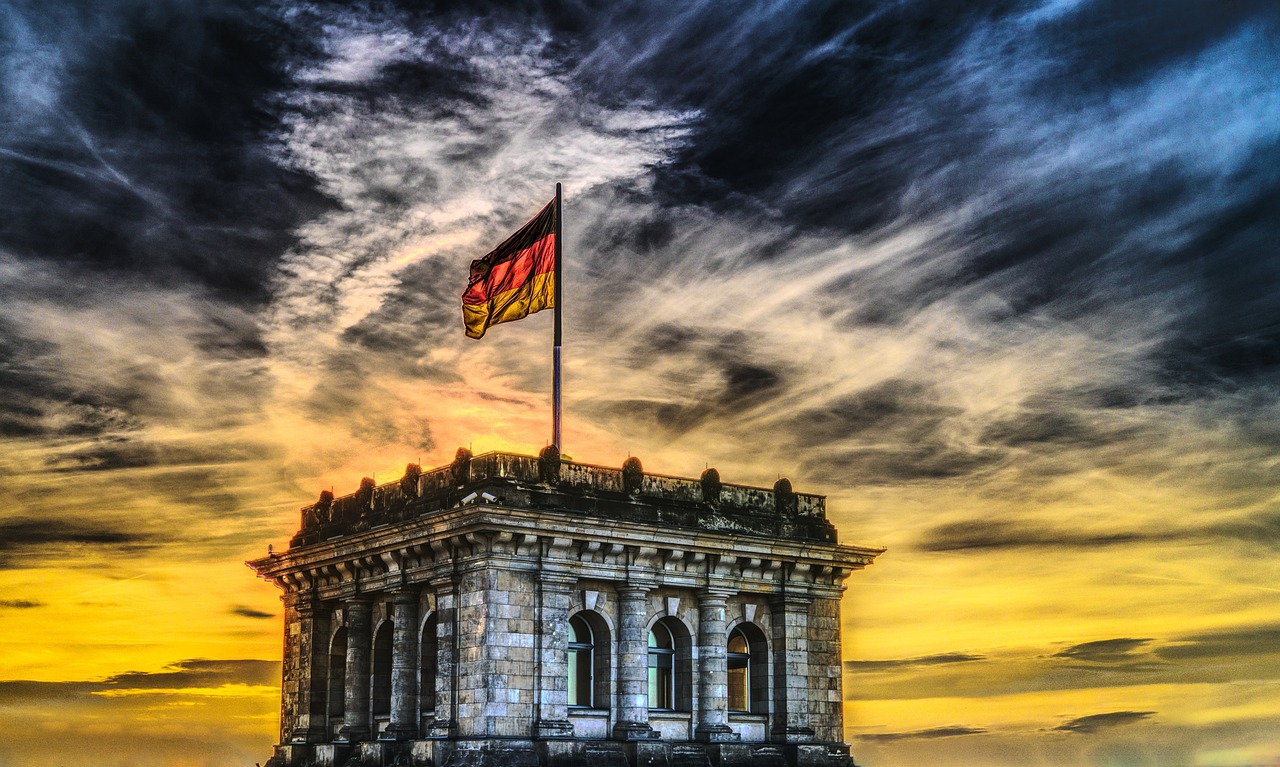
The influence of traditional media on the proliferation of hate politics cannot be overstated. Newspapers, television broadcasts, and radio shows have long served as the primary sources of information for the public. However, with great power comes great responsibility, and many media outlets have fallen short in their duty to report fairly and accurately. Instead of fostering a nuanced understanding of complex issues, some traditional media have opted for sensationalism, often prioritizing eye-catching headlines over factual reporting. This approach not only misrepresents the truth but also fuels the flames of division within society.
For example, when a news outlet chooses to highlight specific incidents of violence or crime associated with a particular group, it can create a distorted perception among viewers. This selective reporting can lead to generalizations and stereotypes, reinforcing existing biases and animosities. Moreover, the language used in reporting can be just as damaging. Terms that evoke fear or anger can shape public sentiment, pushing individuals further into their ideological corners.
To illustrate the impact of traditional media, consider the following table that outlines the types of coverage often associated with hate politics and their potential consequences:
| Type of Coverage | Potential Consequence |
|---|---|
| Selective Reporting | Reinforcement of stereotypes and biases |
| Fear-Inducing Language | Increased public anxiety and polarization |
| Normalization of Hate Speech | Desensitization to violence and hostility |
The responsibility of journalists extends beyond merely reporting the news; they have the power to shape narratives and influence public opinion. When media outlets choose to amplify voices of hate or give undue platform to extremist views, they inadvertently contribute to a culture of hostility. This raises an important question: how can traditional media reclaim its role as a force for good in society?
One potential solution lies in adopting a more ethical approach to journalism. Media organizations should prioritize accuracy, context, and fairness in their reporting. This means not only covering stories that involve hate but also providing a balanced view that includes the voices of those working towards peace and understanding. By highlighting positive community initiatives and fostering dialogue, traditional media can play a crucial role in countering hate politics and promoting inclusivity.
In conclusion, while traditional media has the potential to perpetuate hate politics, it also has the power to challenge and dismantle it. By embracing responsible journalism, media outlets can contribute to a more informed and compassionate society, ultimately fostering a political landscape that values dialogue over division.
- What is hate politics? Hate politics refers to political practices that exploit fear and division among different groups, often targeting specific communities based on race, religion, or ideology.
- How does media influence hate politics? Media can amplify hate politics by selectively reporting stories, using fear-inducing language, and providing a platform for extremist views, shaping public perception and behavior.
- What can be done to counter hate politics? Addressing hate politics requires collective efforts, including educational initiatives, community engagement, and responsible journalism that promotes inclusivity and understanding.

In the intricate dance of politics, rhetoric serves as both a sword and a shield. Politicians often wield it to mobilize support, tapping into the fears and frustrations of the populace. Have you ever noticed how some campaigns seem to thrive on division? This is no accident; it's a calculated strategy. By exploiting societal divisions, politicians can create a sense of urgency and rally their base around a common enemy, whether real or imagined. This tactic not only galvanizes their supporters but also marginalizes opposing viewpoints, effectively silencing dissent.
What’s particularly alarming is how this rhetoric can seep into the fabric of everyday life. When politicians use inflammatory language, they set the tone for public discourse. For instance, consider the way certain terms become buzzwords during election cycles. Words like "us versus them" or "patriotism" can evoke strong emotions, leading to a polarized environment where constructive dialogue is nearly impossible. It’s as if these campaigns are designed to create a battlefield rather than a forum for discussion.
The impact of such rhetoric extends beyond the political arena. It shapes the way individuals perceive each other in their communities. People begin to view their neighbors not as fellow citizens but as potential adversaries. This shift in perspective can lead to a breakdown in community cohesion, fostering an atmosphere of distrust and hostility. In essence, the language used in political campaigns can have profound implications on social relationships.
Moreover, the strategies employed in political campaigns often reflect broader societal trends. As hate politics gains traction, candidates may feel pressured to adopt more extreme positions to stand out in a crowded field. This can create a vicious cycle where the normalization of extremist rhetoric becomes the new standard. In this context, it’s crucial to understand how political rhetoric not only influences elections but also shapes the cultural landscape.
To illustrate the power of political rhetoric, let’s take a look at a few notable examples:
| Campaign | Rhetoric Used | Impact |
|---|---|---|
| Election A | "Protect our way of life" | Increased fear and division among communities |
| Election B | "Real Americans" | Created an 'in-group' vs. 'out-group' mentality |
| Election C | "Take back our country" | Mobilized grassroots movements but also incited violence |
This table highlights how specific phrases can resonate deeply with audiences, often leading to unintended consequences. As we analyze the implications of these strategies, it becomes evident that the responsibility falls not just on politicians but also on voters and media outlets to critically assess the narratives being presented.
Ultimately, the rhetoric employed in political campaigns is a reflection of our collective psyche. It reveals what we value, what we fear, and how we perceive our place in society. By understanding the dynamics of political rhetoric, we can begin to challenge the narratives that divide us and work towards a more inclusive and empathetic political discourse.
- What is hate politics? Hate politics refers to political strategies that exploit fear, division, and animosity towards certain groups to gain support.
- How does political rhetoric influence society? Political rhetoric shapes public perception, often leading to polarization and a breakdown of community cohesion.
- Can hate politics be countered? Yes, through education, community engagement, and promoting inclusive dialogue, we can counter the effects of hate politics.

The ramifications of hate politics extend far beyond the political arena; they seep into the very fabric of individual lives and communities. Understanding the psychological impact of such divisive ideologies is essential, as it sheds light on how they shape not only societal dynamics but also the mental health of individuals. Hate politics breeds an environment rife with fear and anxiety, creating a climate where individuals feel threatened and marginalized. This pervasive fear can lead to a breakdown of community bonds, as people become more focused on self-preservation than on fostering connections with others.
One of the most alarming psychological effects of hate politics is the desensitization to violence. When individuals are repeatedly exposed to hate-filled rhetoric, they may begin to normalize aggressive behaviors and attitudes. This desensitization can manifest in various ways, from a lack of empathy towards victims of hate to an increased acceptance of violent actions as a means of expressing dissent. Imagine living in a world where the line between right and wrong blurs, and aggression becomes a common response to conflict. This reality is not far-fetched; it is a consequence of the hate politics that permeate our discourse.
Furthermore, the impact of hate politics is not just limited to those who are targeted; it also affects the perpetrators. Engaging in hate-driven rhetoric can lead to a sense of isolation and internal conflict. Individuals who espouse hate may find themselves trapped in a cycle of negativity, which can exacerbate feelings of anger, frustration, and ultimately, loneliness. This psychological toll can create a vicious cycle, where hate breeds more hate, leaving behind a trail of damaged relationships and fractured communities.
To illustrate the psychological impact of hate politics, consider the following table that summarizes some of the key effects:
| Impact | Description |
|---|---|
| Fear and Anxiety | Creates a climate of fear, leading to social withdrawal and distrust among community members. |
| Desensitization to Violence | Normalizes aggressive behavior, reducing empathy towards victims and increasing acceptance of violence. |
| Isolation of Perpetrators | Leads to internal conflict and loneliness among those who engage in hate rhetoric, creating a cycle of negativity. |
In essence, the psychological impact of hate politics is profound and multifaceted. It not only creates a toxic environment for those directly affected but also erodes the mental health of individuals who perpetuate such ideologies. As communities grapple with these challenges, it becomes increasingly important to address the root causes of hate politics and to foster a culture of empathy and understanding. Only then can we hope to heal the psychological wounds inflicted by hate and build a more inclusive society.
- What are the main psychological effects of hate politics?
The main psychological effects include fear and anxiety, desensitization to violence, and isolation among both victims and perpetrators.
- How does hate politics affect community cohesion?
Hate politics creates an environment of distrust and fear, leading to social withdrawal and a breakdown of community bonds.
- What can be done to mitigate the psychological impact of hate politics?
Education, community engagement, and promoting empathy can help counteract the negative psychological effects of hate politics.
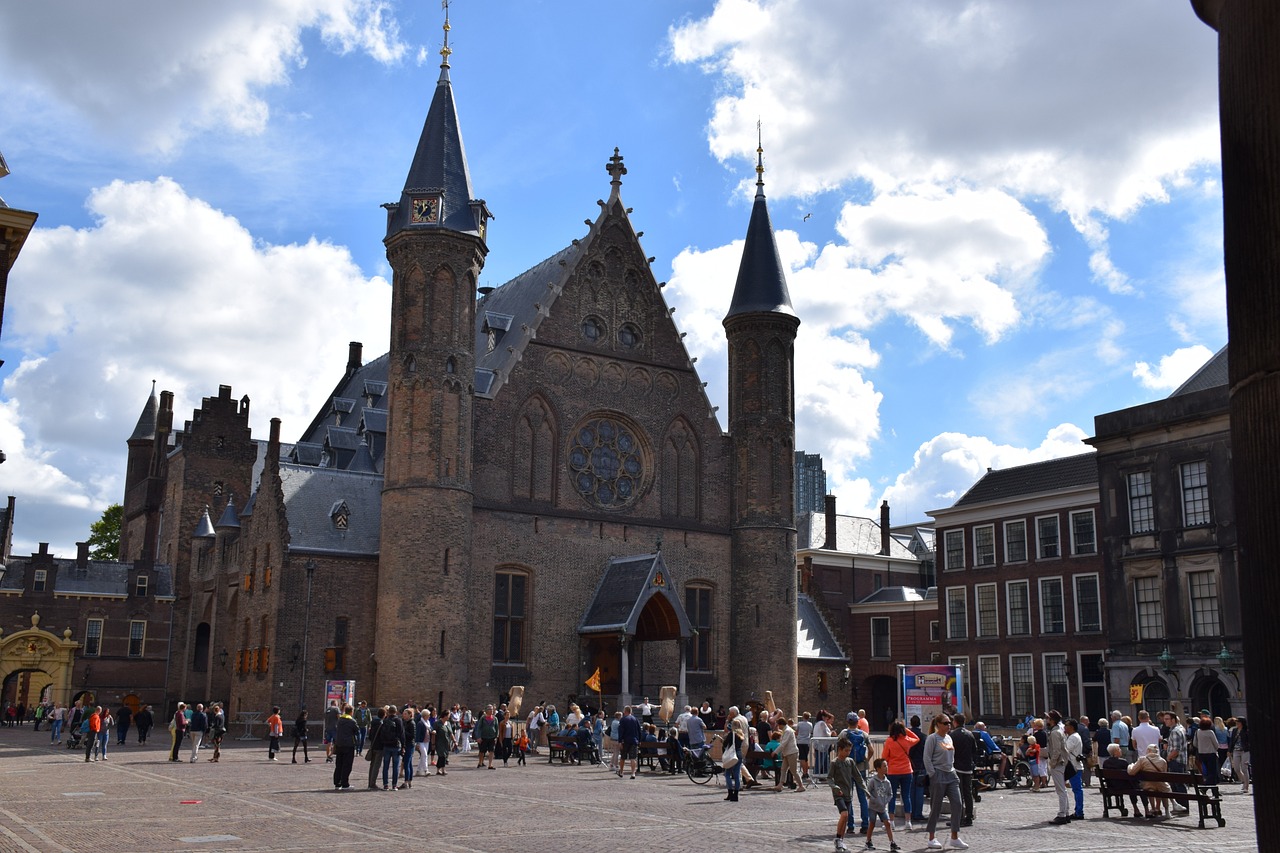
The rise of hate politics has not just been a backdrop to societal events; it has actively shaped the emotional landscape of communities across the globe. As individuals are bombarded with messages of division and hostility, a pervasive climate of fear takes root. This fear is not merely an abstract concept; it manifests in various ways, affecting how people interact with one another and perceive the world around them. Imagine walking through your neighborhood, once a place of comfort, now filled with an undercurrent of suspicion and anxiety. This shift can be attributed to the rhetoric propagated by political figures and media outlets that thrive on sensationalism.
Fear can lead to a range of emotional responses, including anxiety, distrust, and even hostility towards others. Individuals may start to feel that they must choose sides in an increasingly polarized society, leading to a breakdown in community cohesion. As anxiety levels rise, people often withdraw from social interactions, fearing judgment or confrontation. This not only isolates individuals but also diminishes the sense of belonging that is critical for mental well-being. The question arises: how do we navigate a world where fear is weaponized for political gain?
Furthermore, the psychological impact of hate politics extends beyond individual experiences; it can ripple through families and communities. Children, for instance, are particularly vulnerable. They absorb the fears of their parents and the messages they see on social media, leading to a distorted view of reality. This can create a cycle of anxiety that perpetuates itself. They might grow up thinking that the world is a dangerous place, leading to a lack of trust in others and a reluctance to engage in civic participation.
In this environment, it becomes crucial to address these feelings head-on. Communities must find ways to foster dialogue and understanding, breaking down the walls that fear has built. Initiatives aimed at promoting empathy and connection can serve as antidotes to the pervasive anxiety fueled by hate politics. For example, community forums and workshops can provide safe spaces for individuals to express their fears and experiences, allowing for healing and understanding to take place.
In summary, the emotional repercussions of hate politics are profound, creating a cycle of fear and anxiety that can undermine the very fabric of society. By recognizing these impacts and actively working to counter them, we can begin to rebuild trust and foster a more inclusive environment where dialogue replaces division.
- What is hate politics? Hate politics refers to political strategies that exploit societal divisions, often using fear and hostility towards certain groups to gain support.
- How does hate politics affect mental health? It creates a climate of fear and anxiety, impacting individual well-being and community cohesion.
- What can be done to counter hate politics? Initiatives such as educational programs and community engagement can help promote understanding and empathy.
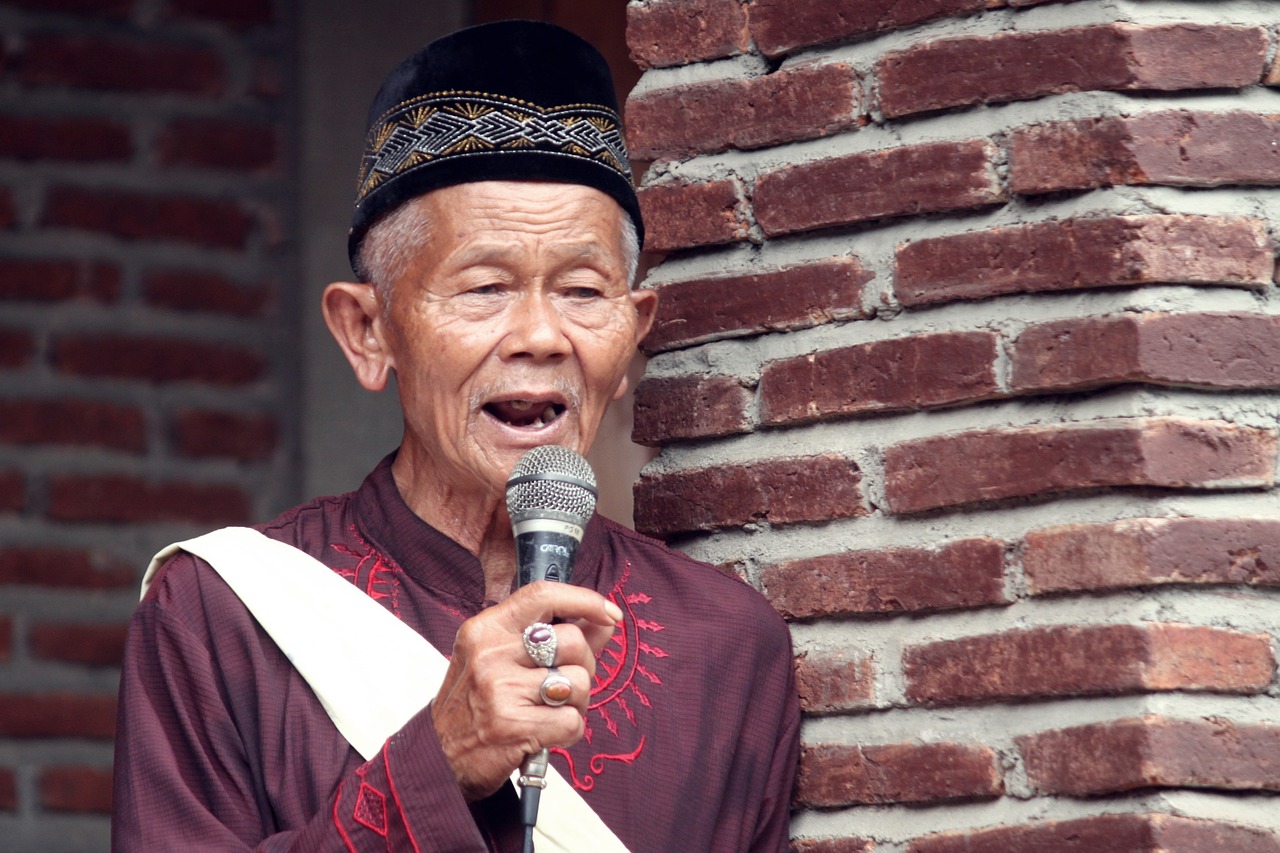
The phenomenon of desensitization to violence is a troubling consequence of the pervasive nature of hate politics in our society today. When individuals are repeatedly exposed to violent rhetoric and imagery, whether through media, political discourse, or social interactions, they can begin to lose their emotional response to real acts of aggression. This gradual numbness can lead to a society where violence is not only normalized but also accepted as a viable means of resolving conflict. Imagine a world where the sound of sirens no longer prompts concern, or where the sight of protestors clashing with law enforcement is met with indifference. This is the reality that desensitization to violence creates.
One of the most alarming aspects of this desensitization is its impact on public behavior and attitudes. When hate politics saturates our conversations, it can shift societal norms and expectations. For instance, consider how many people might react to violent protests or hate crimes today compared to a decade ago. The normalization of such events can lead to a dangerous cycle where individuals feel justified in their own aggressive behaviors, believing that violence is an acceptable response to dissent or disagreement. This cycle can perpetuate a culture of fear and hostility, making it increasingly difficult for communities to engage in constructive dialogue.
Furthermore, desensitization can have profound effects on mental health. Individuals who are constantly bombarded with violent imagery may experience a range of psychological issues, including anxiety, depression, and post-traumatic stress disorder (PTSD). The emotional toll of witnessing or hearing about violence can be overwhelming, leading to feelings of helplessness and despair. In a sense, the more we expose ourselves to violence, the more we risk becoming trapped in a cycle of fear and aggression, where empathy and compassion are overshadowed by anger and hostility.
To illustrate the impact of desensitization, consider the following table that summarizes key effects:
| Effect | Description |
|---|---|
| Emotional Numbness | Reduced emotional response to violence, leading to indifference. |
| Normalization of Violence | Acceptance of violence as a regular part of life and conflict resolution. |
| Psychological Issues | Increased risk of anxiety, depression, and PTSD due to constant exposure. |
| Cultural Shift | Changes in societal norms that favor aggression over peaceful dialogue. |
In conclusion, the desensitization to violence fueled by hate politics is a multifaceted issue that affects not only individual well-being but also the broader fabric of society. As we navigate this complex landscape, it’s crucial to recognize the signs of desensitization and actively work to counteract its effects through education, open dialogue, and community engagement. Only by fostering a culture of empathy and understanding can we hope to break the cycle of hate and violence that threatens to engulf us.
- What is hate politics? Hate politics refers to political ideologies and practices that promote division, hostility, and discrimination against certain groups based on race, ethnicity, religion, or other characteristics.
- How does hate politics manifest in society? It can manifest through aggressive rhetoric, discriminatory policies, and social media campaigns that target specific groups.
- What are the psychological effects of hate politics? Hate politics can lead to increased anxiety, fear, and desensitization to violence, impacting both individuals and communities.
- How can we counter hate politics? Strategies include promoting education, community engagement, and fostering open dialogue to encourage understanding and empathy.
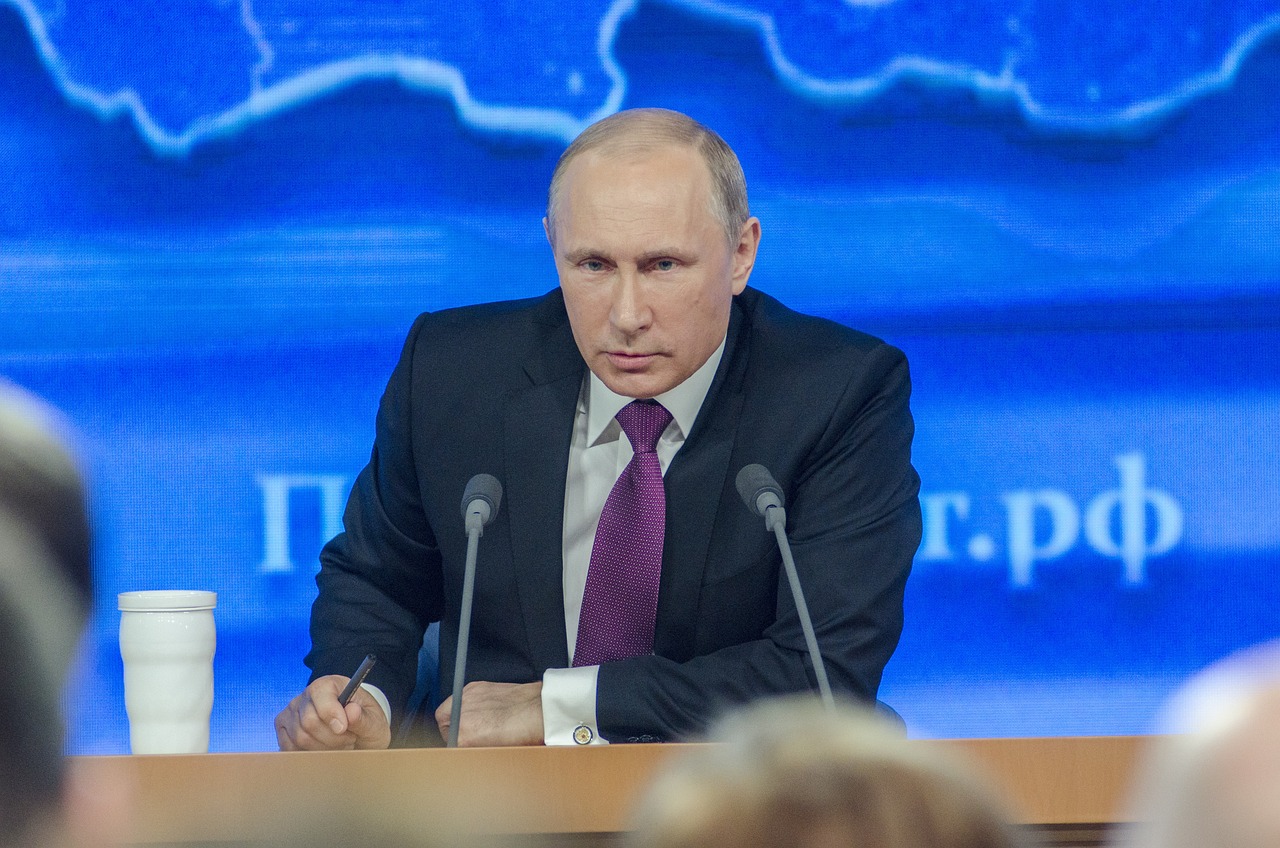
Addressing hate politics is not merely a task for politicians or activists; it requires a collective effort from all corners of society. To effectively counteract the corrosive effects of hate, we must adopt a multifaceted approach that promotes inclusivity and understanding. This can be likened to tending a garden; if we want to cultivate a thriving community, we must pull out the weeds of hate and nurture the seeds of empathy and respect. So, how can we do this? Let’s explore some strategies and initiatives that can pave the way for a more harmonious political discourse.
One of the most powerful tools we have in combating hate is education. Educational initiatives can play a pivotal role in fostering critical thinking and empathy among students. Schools and universities can implement programs that encourage open dialogue about diversity, inclusion, and the dangers of hate politics. For instance, workshops that challenge preconceived notions and promote understanding of different cultures can help dismantle stereotypes and foster a sense of community. By equipping young minds with the tools to think critically, we can create a generation that is less susceptible to divisive ideologies.
Moreover, community engagement is essential in this fight. Grassroots movements have the potential to challenge hate politics effectively. Local organizations can create spaces for dialogue, where individuals from different backgrounds come together to share their experiences and perspectives. These interactions can be transformative, breaking down barriers and building bridges. For example, community forums that focus on discussing local issues can foster understanding and collaboration. When people see each other as neighbors rather than adversaries, it becomes much harder for hate to take root.
Additionally, we must leverage the power of social media to promote positive narratives. While social media platforms can often amplify hate, they also provide a unique opportunity to spread messages of love and acceptance. Campaigns that encourage users to share stories of kindness and solidarity can counteract the negativity that often permeates online spaces. Think of it as a digital movement, where each share and like serves as a small act of defiance against hate. By creating a positive online culture, we can gradually shift the narrative and make inclusivity the norm.
Lastly, it is crucial for individuals to recognize their role in countering hate politics. Every person has the power to challenge hateful rhetoric when they encounter it, whether in conversation or online. This could mean speaking up when someone makes a derogatory comment or sharing resources that educate others about the impacts of hate. By taking a stand, we not only protect ourselves but also create a ripple effect that encourages others to do the same. Remember, just as a single drop can create ripples in a pond, individual actions can lead to significant societal change.
- What is hate politics? Hate politics refers to the use of divisive ideologies and rhetoric that incite fear, anger, and hostility towards specific groups.
- How can education help in countering hate politics? Education fosters critical thinking, empathy, and understanding, which can dismantle stereotypes and promote inclusivity.
- What role does community engagement play? Community engagement creates opportunities for dialogue and understanding, helping to break down barriers between different groups.
- How can I contribute to countering hate politics? You can contribute by speaking up against hate, sharing positive narratives, and participating in community initiatives.

Education serves as a powerful antidote to the poison of hate politics. By fostering critical thinking and empathy, educational initiatives can reshape the way individuals perceive differences and engage with one another. Imagine a classroom where students aren’t just taught facts, but also how to navigate the complex web of human emotions and societal issues. This is not just a dream; it’s a reality that can be cultivated through targeted educational programs.
One effective approach is to incorporate diversity and inclusion training into school curriculums. This can help students understand and appreciate various cultural backgrounds, ultimately reducing prejudice and fostering a sense of community. Research shows that when students are exposed to diverse perspectives, they are more likely to develop empathy and a deeper understanding of others' experiences. For instance, programs that include storytelling from different cultures or discussions around historical injustices can be particularly impactful.
Additionally, integrating social-emotional learning (SEL) into educational frameworks can significantly aid in combating hate politics. SEL focuses on developing skills such as self-awareness, self-management, social awareness, relationship skills, and responsible decision-making. By equipping students with these skills, educators can help them navigate their emotions and interactions more effectively, thereby reducing the likelihood of engaging in or perpetuating hate-driven ideologies.
Furthermore, schools can implement peer mediation programs where students are trained to resolve conflicts among their peers. This not only empowers students to take charge of their social environments but also reduces the chances of escalating tensions that can lead to divisive behavior. By teaching students how to communicate effectively and resolve disputes amicably, schools can create a more harmonious atmosphere.
In the digital age, it's crucial for educational initiatives to extend beyond the classroom. Online platforms can be utilized to reach a wider audience, providing resources and forums for discussion. For example, virtual workshops and webinars can connect students with experts in social justice, allowing for a richer understanding of the implications of hate politics. Not only does this broaden their horizons, but it also empowers them to become advocates for change in their communities.
Finally, collaboration with community organizations can enhance educational initiatives. Schools can partner with local NGOs that focus on anti-hate campaigns, providing students with real-world opportunities to engage in activism. This hands-on experience can be transformative, showing students that they have the power to effect change and challenge hate politics in their own lives.
In summary, educational initiatives are essential in the fight against hate politics. By fostering empathy, critical thinking, and active engagement, we can cultivate a generation that not only recognizes the dangers of hate but also actively works to dismantle it. Through diverse curricula, social-emotional learning, peer mediation, and community partnerships, we can build a more inclusive society where understanding and acceptance thrive.
- What are educational initiatives? Educational initiatives are programs and strategies designed to enhance learning and promote values such as diversity, inclusion, and empathy among students.
- How can schools combat hate politics? Schools can combat hate politics by incorporating diversity training, social-emotional learning, peer mediation, and community engagement into their curriculums.
- Why is empathy important in education? Empathy is crucial in education as it helps students understand and appreciate different perspectives, reducing prejudice and fostering a sense of belonging.
- What role does community involvement play in education? Community involvement enhances educational initiatives by providing real-world experiences and resources that reinforce the lessons learned in the classroom.

Community engagement is a powerful antidote to the poison of hate politics. When individuals come together, share their stories, and build relationships, they create a bulwark against divisive ideologies. Imagine a tapestry woven from diverse threads—each thread representing a unique voice and perspective. This vibrant fabric of community can resist the fraying caused by hate. But how do we foster such engagement in a world that often feels polarized?
One effective approach is through organized community events that encourage dialogue and understanding. These gatherings can take many forms, from town hall meetings to cultural festivals. By providing a platform for people to express their views and listen to others, we can break down barriers and foster empathy. For instance, community dialogues can help to humanize the "other," turning abstract fears into relatable stories. When people share their experiences, it becomes harder to view them as mere stereotypes.
Moreover, grassroots movements have shown remarkable success in challenging hate politics. Local organizations often lead the charge, mobilizing community members to stand against intolerance. These initiatives can include:
- Workshops on conflict resolution and communication skills.
- Public art projects that promote inclusivity and diversity.
- Volunteer opportunities that bring together people from different backgrounds to work towards a common goal.
In addition to these activities, leveraging social media for community engagement can amplify these efforts. Online platforms can serve as virtual town squares where people discuss issues, share resources, and organize events. However, it’s essential to navigate these spaces mindfully, ensuring that they remain inclusive and respectful. Encouraging positive interactions online can help counteract the negativity that often pervades social media.
Ultimately, fostering community engagement requires a commitment from everyone involved. Local leaders, educators, and citizens must work together to create inclusive spaces where all voices are heard. By prioritizing dialogue and understanding, we can build resilient communities that stand firm against the tide of hate politics.
Q: What is community engagement?
A: Community engagement refers to the process of involving individuals in activities that encourage participation, dialogue, and collaboration within their community.
Q: How can community engagement help combat hate politics?
A: By fostering understanding and empathy among diverse groups, community engagement helps to break down stereotypes and build relationships, reducing the appeal of hate-driven ideologies.
Q: What types of events can promote community engagement?
A: Events such as town hall meetings, cultural festivals, workshops, and volunteer projects can all serve to bring people together and promote dialogue.
Q: How can social media be used for community engagement?
A: Social media can facilitate discussions, share resources, and organize events, creating virtual spaces for community members to connect and collaborate.
Frequently Asked Questions
- What is hate politics?
Hate politics refers to the use of divisive rhetoric and policies that promote animosity towards specific groups based on race, religion, nationality, or other characteristics. It's a strategy often employed by politicians to mobilize support by exploiting societal fears and prejudices.
- What are the roots of hate politics?
The roots of hate politics can be traced back to historical grievances, societal inequalities, and psychological factors. These elements create an environment where divisive ideologies can flourish, often leading to a breakdown in social cohesion and increased polarization.
- How does media influence hate politics?
Media plays a crucial role in amplifying hate politics. Both traditional outlets and social media platforms can spread hateful ideologies through biased reporting or sensationalized content, which often prioritizes engagement over responsible journalism.
- What impact do social media algorithms have?
Social media algorithms often favor sensational content, which can lead to the spread of hate speech and divisive narratives. This prioritization can distort public discourse and create echo chambers that reinforce existing biases.
- How does political rhetoric contribute to hate politics?
Politicians frequently use hate-filled rhetoric as a tool to rally support. By framing issues in a way that pits groups against each other, they can manipulate public sentiment and mobilize voters based on fear and division.
- What are the psychological effects of hate politics?
Hate politics can have significant psychological impacts on both individuals and communities. It can induce fear and anxiety, leading to a climate of distrust, while also normalizing violence and desensitizing individuals to aggressive behaviors.
- How can we counter hate politics?
Countering hate politics requires collective action. Educational initiatives that promote critical thinking and empathy, along with grassroots community engagement, can foster understanding and dialogue, making it harder for hate to thrive.
- What role does education play in combating hate politics?
Education is pivotal in combating hate politics. Programs designed to encourage critical thinking, empathy, and inclusivity can help individuals recognize and challenge divisive narratives, ultimately fostering a more accepting society.
- Can community initiatives really make a difference?
Absolutely! Grassroots movements and community initiatives have proven effective in challenging hate politics. By promoting understanding and dialogue, these efforts can bridge divides and create a more inclusive political discourse.



















